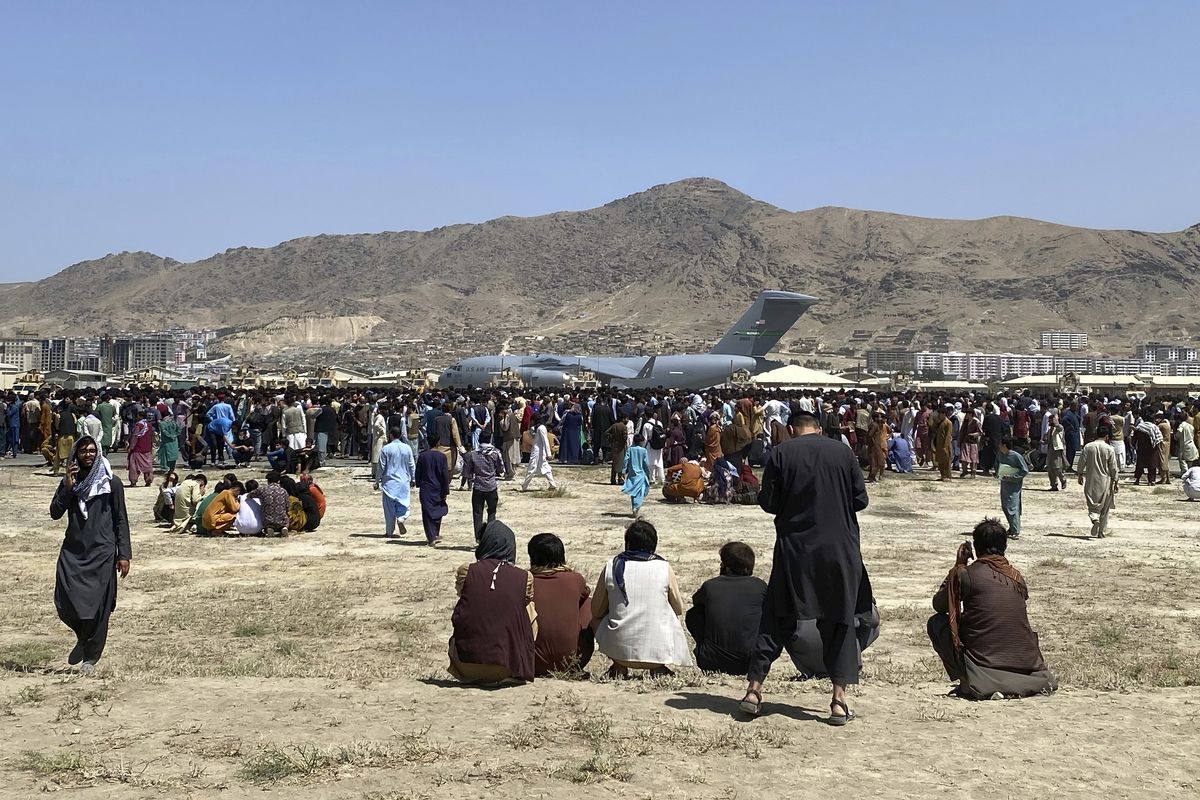3 California families get out of Afghanistan to safety

EL CAJON, Calif. — Three families from a San Diego suburb have made it out of Afghanistan after they went to the country earlier this summer to visit relatives and got stuck there amid the chaos following the Taliban’s takeover, officials said Thursday.
Five other families from El Cajon were still trying to get out, and U.S. government officials along with California Republican Rep. Darrell Issa were working on their safe return. The suburb, east of San Diego, has a large refugee population. Many of the families had gone to Afghanistan in May and early June, weeks before the crisis unfolded, so their children could see their grandparents and other relatives.
Officials initially said six families from El Cajon were trapped there but later learned there were a total of eight families from the city trying to get out of the country.
“We have more work to do and under extremely difficult conditions,” Issa said in a statement.
Fraidoon Hashemi, an Afghan who works as a community liaison for the Cajon Valley Union School District, said he has been in contact with the families and on Thursday was awaiting word from those who remain. All the families have children attending various schools in the district.
He said he was growing concerned because of news that two suicide bombers and gunmen attacked crowds of Afghans flocking to Kabul’s airport Thursday.
“We hope to hear from them soon,” he said.
Howard Shen, a district spokesman, said one family with five children arrived in San Diego on Wednesday night. The two other families were out of Afghanistan, but Shen said he could not confirm exactly where they were — only that they are safe.
“That’s all we want,” he said.
Counseling was being made available for the families and for their children’s schools.
Hashemi said the family back in San Diego was still shaken after their harrowing experience.
“They are OK now,” he said. “They need to calm down and forget what they’ve seen.”
In all, the El Cajon families included two dozen children, some of whom witnessed shootings and other violence in and around the Kabul airport in recent days, Hashemi said.
The families had each traveled to Afghanistan on their own on different dates and were not part of an organized trip.
The families asked U.S. officials for help after being blocked by the throngs of Afghans at the airport desperately trying to escape after their government’s rapid collapse and the withdrawal of U.S. troops.
The school district became aware of the problem after a relative of one of the families reached out to say their child would be late starting the school year, which began Aug. 17.
Secretary of State Antony Blinken said Wednesday that as many as 1,500 Americans may be awaiting evacuation from Afghanistan. It was unclear if that included all the El Cajon families. Some are U.S. citizens; others have U.S. residency.
Despite travel warnings from the U.S. government, many felt an urgency to go to the country after not being able to see their extended families because of travel bans from the coronavirus pandemic, Hashemi said.
Most of the El Cajon families came to the United States on a special immigrant visa after having worked for the U.S. government or U.S. military in Afghanistan, officials said. The visa allows in only the person and their spouse and children.
Superintendent David Miyashiro said the families are particularly scared because of the upcoming Aug. 31 deadline for the United States to complete its withdrawal.
Miyashiro said he could not provide more details since the children and their parents could be in danger.